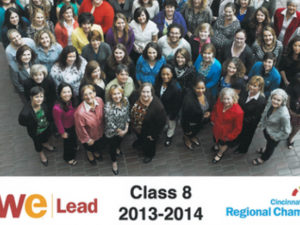
It happens nearly every month. We’re reviewing a monthly or quarterly analytics report with a client who is on a digital marketing program that includes social media and they say: “Wow, are you sure we only had XXX visitors to our website from social media. It seems like we’re spending a lot of time and energy on social media and I don’t get nearly as much out of it as I do from these other sources.”
First, I’m impressed that we have clients who have become so marketing and analytics savvy that they dig into these numbers and see these stories and ask such great questions. And second, I love that our attribution has gotten so good, we can follow a user path from where they came from through every step toward conversion. Third, I appreciate that we’re using real data to make decisions about where to spend marketing resources. We’ve left gut instincts and what I’ve heard works in the dust and are looking at what the data says is actually working.
But, we shouldn’t lose sight of the value of social media in our love of attribution. If we only give credit to social media for the very specific and exact number of website visitors that Google Analytics tells us came from those platforms, we are discounting its importance and undervaluing it.
And, time after time, I’ve seen social activity lead to organic and direct website traffic growth. More often than to believe it is merely a coincidence.
Does social have an impact on SEO and organic traffic?
This is where it gets controversial. Google claims they’re not using social in their search rankings. And, when I tell clients to consider the SEO benefits of social, they almost always say something like, “I read online that Google says social doesn’t help me organically.”
Hootsuite has this to say:
The question of whether social media has any impact on SEO has been long debated. In 2010, both Google and Bing admitted to using social signals to help rank pages within their results. Four years later, that stance changed after Twitter temporarily blocked Google’s access to their social network. In 2014, Google’s former head of webspam, Matt Cutts, released a video explaining how Google can’t rely on signals that might not be there tomorrow.
That’s where the conversation stopped. Since 2014, Google has publicly denied that social has any direct affect on rankings.
So, why do I insist that social media has an impact on SEO. Because I have seen it first-hand in client after client. As social activity – posting, sharing, liking, follower growth – grows, so too does organic and direct traffic. I’ve seen it too many times to ignore it. So here’s my theory:
- Some say social media growth is correlated to SEO growth, for example, if you do more social media you’re probably doing other marketing tactics that are driving people to your website. Social and organic are grow together, but independent of each other. I won’t say that’s untrue. We always recommend social media to clients as part of an integrated mix, so they are paying attention to marketing on multiple channels, and a rising tide lifts all boats.
- A social media post creates a link. Whether you link to your website case study page from Facebook or a blog, there’s a link. When someone shares your post, now there are two links. In the vast web, two links may seem small. But in a small niche industry where many of our B2B clients live, that’s two more links than your competitor got to their case studies page that’s buried on their site with no links. Don’t underestimate the power of links within social networks.
- Sometimes people do things the hard way. It’s hard to imagine in this day and age this scenario, but it really still happens: Someone is scrolling through LinkedIn and spots your headline and blurb with a box that has a photo and your website URL. They think to themselves that’s interesting and store the thought for later. They’re at their desk and open a browser and type in your URL. Wow, the social post created traffic that we couldn’t track back to LinkedIn. Don’t discredit old-fashioned name recognition and brand awareness as big parts of the impact that social can have on your non-paid (organic and direct) website traffic.
- You have to be popular to be popular. It’s the evil truth about search engines. They notice you after everyone else notices you. You get credit and traffic because you have traffic that comes to your page and spends time there. So spending time on social media is about getting popular despite Google, and because Google doesn’t notice you yet. Google is the boyfriend who didn’t notice you until you had a boyfriend. Sometimes a social media platform is the high school boyfriend you had before your big crush finally asked you out.
What should we do?
The only people who know for sure how all of that posting and sharing and liking and following affects search engine placement and rankings are the people writing the algorithms. There are so many of those people that it seems unlikely that any of them know for sure either with a program that seems to have a life of its own.
From a practical standpoint:
- Stick with it. One month or six months is not enough to know exactly how social media is moving the needle for you
- Don’t put all of your decision-making into the referral traffic numbers from a specific social media platform.
- Pay attention to updates. Expert opinions about social media and SEO are worth reading. Insights and expertise can only help make your program stronger.
- Be willing to give social media credit for indirect benefits – not just what you see in the data – such as brand awareness and name recognition.










